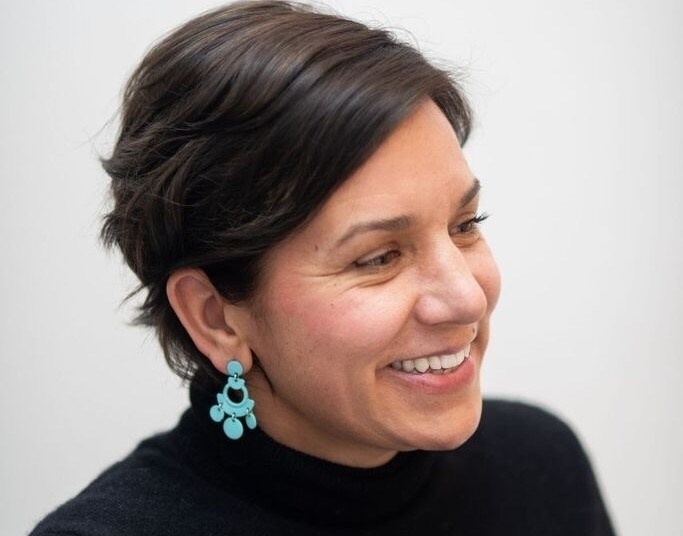
Kelowna resident Spring Hawes was awarded the B.C. Medal of Good Citizenship for her work advocating for accessibility.
Image Credit: SUBMITTED/ Ministry of Tourism, Culture and Sport
January 08, 2024 - 6:00 PM
For almost two decades Kelowna resident Spring Hawes has been working tirelessly to improve accessibility and inclusivity for people with disabilities.
She became a wheelchair user following a mountain bike accident 18 years ago and has used her lived experience to push for much-needed change ever since.
“When I was first injured it was very shocking, I didn’t know how disabled people were treated,” Hawes said. “It was extremely traumatic, almost as much as my injury to discover how we treat disabled people in this society.”
Hawes was recently honoured by the province with the Medal of Good Citizenship for her extraordinary contributions to her community. She said she was “completely stunned” when she found out.
“It’s lovely to be recognized, I do a lot of things outside of the public eye like writing letters and supporting people privately,” she said. “Among the disabled people I consider my community are people who also work hard every day and don’t get recognized. I wish to acknowledge and share this recognition with all of them.”
READ MORE: Housing cheaper than it was a year ago in Okanagan, Kamloops
Earlier this week, Hawes was stuck outside of a building in the cold waving for the attention from someone inside. Concrete barriers in a parking lot in front of the establishment were too close together to move her chair through.
“We have to question why it’s OK for barriers to exist for disabled people, and these kinds of barriers are easy to remove,” she said. “If a different segment of society was routinely excluded would society be fine and accepting of that?”
Hawes served as a city councillor and advocate for accessibility in the East Kootenays before moving to Kelowna roughly six years ago. While she has seen some accessibility improvements in the Central Okanagan, she said society is still a long ways away from inclusive because of ableism.
“Ableism is a form of discrimination against people with disabilities at an individual, organizational or societal level,” she said. “In our society it’s a structural discrimination. We still build buildings that people who use wheelchairs can’t get into and have movie theatres people who are deaf cannot access. These things are routine and common and not questioned. That’s how ableism is built into the structures of our society.”
READ MORE: Kelowna outshone most of BC for new construction in 2023
The biggest positive change Hawes has seen during her advocacy is the provision of the Accessible British Columbia Act and the Accessible Canada Act, which were not laws when she was first injured.
She's now a co-chair on a committee of people with disabilities that advises the government on implementing the provincial act designed to remove barriers to accessibility.
“This is where a lot of the change will happen,” she said. “Up until now we’ve allowed accessibility to be at the discretion of individual builders or business owners. We’ve treated accessibility as a favour but with legislation now in place it will create expectations and requirements around accessibility.”
Hawes is also a board member for Accessible Okanagan, a non-profit run by and for people with disabilities.
“This group existed before I arrived, it could be the larges non-profit group of disabled people the world,” she said. “It’s a community of disabled people who get together and do fun things.”
Out in general society, Hawes said there is still stigma around disabilities.
“Stigma is an expression of ableism this happens regularly,” she said. “People will talk around me or talk over me, ignore me or talk to me like I’m a child or like I can’t think for myself.”
She said disabilities apply to many different people who are limited by structural barriers.
“Sometimes we think of disabilities in terms of mobility, but disabilities come in all forms from blindness and deafness to mental disabilities, it’s a broad spectrum of humanity. It’s about building structures and providing services for all of the population.”
When asked for her advice to others living with disabilities, Hawes said she wants them to remember they are “valuable human beings.”
“They are entitled to the same rights as anyone else, they are not a burden, their lives are full and valuable and worthy.”
To contact a reporter for this story, email Shannon Ainslie or call 250-819-6089 or email the editor. You can also submit photos, videos or news tips to the newsroom and be entered to win a monthly prize draw.
We welcome your comments and opinions on our stories but play nice. We won't censor or delete comments unless they contain off-topic statements or links, unnecessary vulgarity, false facts, spam or obviously fake profiles. If you have any concerns about what you see in comments, email the editor in the link above. SUBSCRIBE to our awesome newsletter here.
News from © iNFOnews, 2024